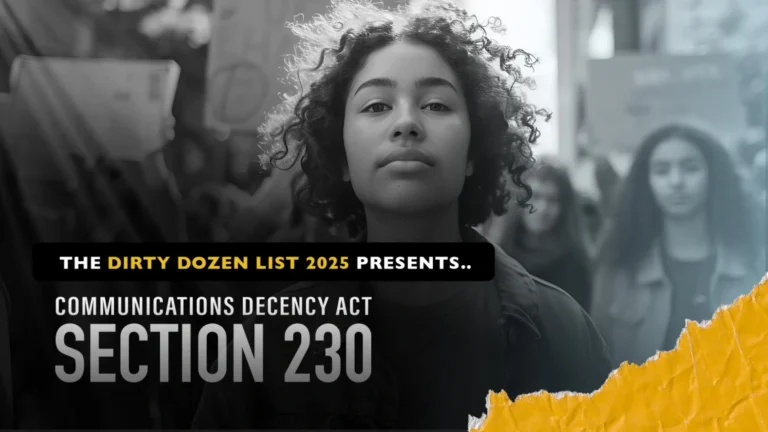NEW YORK (23 October 2000) – Robert W. Peters, President of Morality in Media, issued this statement commenting on today’s New York Times article, “Technology Sent Wall Street Into Market for Porn”:
“The mainstream news media are usually interested in porn only when attempting to defend the porn industry against opponents or when gushing over the industry’s apparent popularity and financial success. The ugly, destructive side of the porn industry and its product line seldom merit serious attention.
“Today’s front-page article in the New York Times, ‘Technology Sent Wall Street Into Market for Porn,’ is no exception. The article implies that ‘the demand’ for porn and the list of prominent companies (e.g., AT&T, EchoStar, Hilton, Marriott, General Motors, News Corp. Time Warner, Tower Records) now distributing it are indication of community acceptance.
“On Friday, the COPA Commission issued a report calling for enforcement of obscenity laws to protect children from Internet porn. Since obscenity determinations depend in part on application of ‘community standards,’ the Times’s article may lead some to conclude that obscenity laws cannot or should not be enforced.
“Much of porn’s ‘demand,’ however, is a result of porn experimentation and addiction. Curiosity, foolishness and yielding to temptation are not the same thing as community acceptance. The large majority of citizens aren’t into porn.
“The Times’s article may also lead some to think that a lost obscenity case in Utah, ‘long regarded as a bastion of family values morality,’ is proof that community standards have sunk to an all time low. Juries in obscenity cases, however, are often misled into equating availability of porn with community acceptance. If community standards were so low, why did Larry Flynt’s corporation plead guilty to obscenity in Cincinnati in 1999?
“In 1997, Morality in Media commissioned Wirthlin Worldwide to conduct an opinion poll regarding enforcement of federal obscenity laws. Eighty percent supported ‘vigorous enforcement.’
“It should come as no surprise that there is a market for hardcore porn. The sex drive is an essential part of human nature. But it is also true that a ‘key relationship of human existence, central to family life, community welfare, and the development of human personality, can be debased and distorted by crass commercial exploitation of sex’ (Paris Adult Theatre I v. Slaton).
That’s why we have laws against prostitution and obscene matter and performances. Children, family life, public safety and what former Chief Justice Earl Warren described as the ‘right of the Nation and States to maintain a decent society’ are all threatened by the proliferation of hardcore pornography.
“Undoubtedly, the hardcore porn industry has had a heyday during the past eight years — despite Bill Clinton’s 1992 campaign pledge that ‘aggressive enforcement’ of federal obscenity laws would be ‘a priority.’ Undoubtedly, some are pleased with the Clinton/Reno failure to enforce obscenity laws and hope the next administration will continue the no enforcement policy.
“We think most Americans would disagree that the proliferation and ‘mainstreaming’ of hardcore porn is a positive development for the nation, family life and children. And, we think the next president will disagree with the porn industry and amoral corporate leaders and will enforce federal obscenity laws.” Author: MIM 10/23/2000



